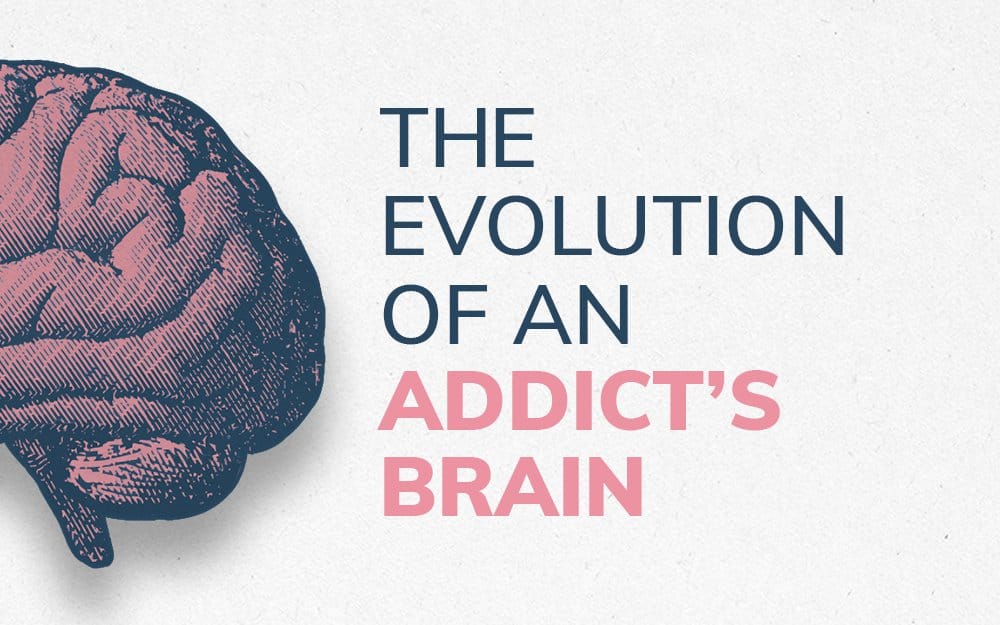

By: Lakeview Health
How Drugs Affect the Brain: The Evolution of an Addict’s Mind
Drug use in the United States has become a significant problem in recent years, as drug availability and overdose deaths have steadily increased. The danger of drugs goes beyond temporary impairment and long term dependence. The consistent use of any type of drug causes long term, permanent damage to vital areas within the brain, leading to a wide variety of health complaints. Our team wanted to illustrate the areas of the brain at risk for damage through the long-term use of different types of drugs to raise awareness and provide resources to those trying to understand the hazards of addiction. Our medical professionals, including Dr. Ellen Ovson, created a series of illustrations outlining the areas that drugs damage the brain. You can see the results below.
Stimulants, including methamphetamine, cocaine, and ecstasy, can cause widespread damage to most areas of the brain. Areas vulnerable to damage include the hippocampus, which controls memory, the frontal and prefrontal cortex, which involve problem-solving, and the cerebellum, which controls movement and cognition. Stimulants also cause the ventral tegmental area to flood the brain with dopamine, which causes an artificial high that makes stimulants addictive. In addition, artificial dopamine means that natural dopamine releases are dulled and less effective. This leaves the user constantly seeking that artificial high that only the drugs can provide. The limbic system is another major area that is damaged by stimulants. This system controls our basic drives – the urge to eat and drink, our sex drive, our care for our offspring, and our base emotions, including anger. Damage to the limbic system can cause issues with emotional control, inhibition, and emotional attachments. In addition to the specific areas of the brain stimulants damage, they also cause damage to dendrites and receptors in the brain, which prevent consistent communication between the different areas of the brain, leading to additional issues throughout the brain.
Depressants are a drug classified by slowing brain function, breathing, low blood pressure, and confusion. Heroin, prescription opiates, and benzodiazepines all fall under this classification. Damage from these drugs generally focuses on memory, motor function, problem-solving, memory, and vision. Just as with stimulants, the drugs tend to damage the reward system by forcing the ventral tegmental area to release unnatural amounts of dopamine. There is also overall damage to the brain through damage to the dendrites and receptors.
Alcohol is a unique substance because although it is legal and extremely common, it does pose a danger to those inclined to addiction. Of course, having a glass of wine after work with coworkers or even getting drunk at the occasional party does not necessarily cause long-term damage. Excessive use, however, does cause harm to the brain. The areas in danger of long-term damage from alcohol are the same areas affected in general by drinking. Drunkenness is classified by slower brain function, difficulty problem solving, lack of inhibition, lack of coordination, and slurred speech. People tend to have difficulty remembering a night of drinking due to impairment of the temporal lobe. Accordingly, long-term damage from alcohol use affects the temporal lobe, which controls visual and making new memories, the frontal/prefrontal cortex, which controls problem-solving and inhibition, and the cerebellum, which controls balance, coordination, and speech.
Although marijuana is regarded by most to be generally harmless, studies have indicated that there may be permanent damage associated with long-term use of the drug. The effect the drug has on the ventral tegmental area (the reward system of the brain) is similar to other drugs in that it causes a release of dopamine. Additionally, studies indicate damage associated with the hippocampus and medial temporal lobe, leading to issues with memory and recognition. Marijuana also causes issues with general brain function. However, several studies have shown that it tends to have the most profound negative effect on cognition in young people. Drugs and illicit substances of any kind can cause significant damage to brain function, and the danger of addiction is that the reworking of the ventral tegmental area leads to an overpowering craving for drugs. If you or a loved one are struggling with addiction, you can find help using our resources here.





